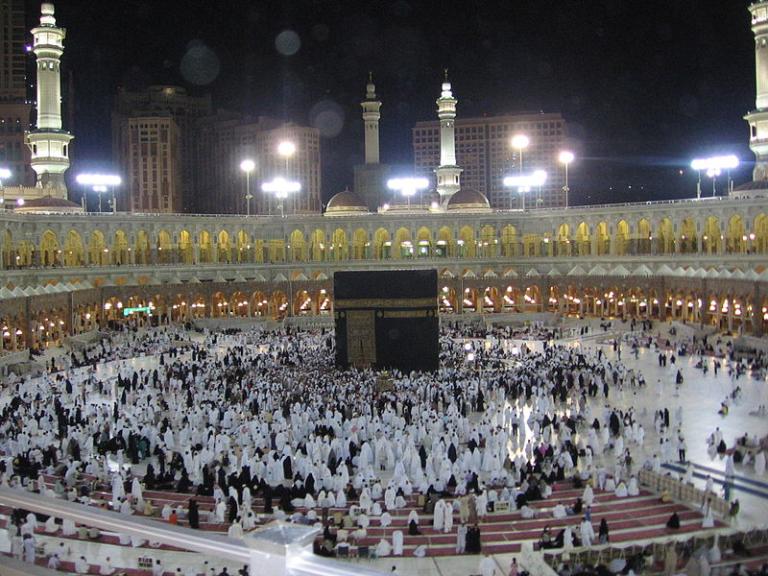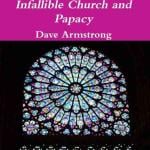
(Wikimedia Commons public domain image)
Evaluations of Muhammad have varied wildly. Skeptical Western writers for years regarded him as a fraud. (Indeed, many liked to link him with Joseph Smith in that regard. To associate the two was to damn both.)[1] The great fourteenth-century Christian poet Dante Alighieri placed him in one of the deepest reaches of Hell.[2] For Muslims, on the other hand, he is the incomparable Messenger of God, “the seal of the prophets.” His place in Islamic piety is astonishingly high, although Muslims strictly avoid worship of him and are offended at any suggestion that they pay him divine honors.[3] (This is similar to what Latter-day Saints feel when it is claimed that they worship Joseph Smith.)
I learned this lesson on my mission in Switzerland. During my time there, at least, it was rather rare for us to actually be invited into anyone’s apartment while tracting. So my companion and I were delighted one evening when a Pakistani banker came to the door and said, “Mormons! I have always wanted to know something of your religion. Please come in!” I well recall thinking to myself what a lucky fellow this guy was, to have chanced upon perhaps the most knowledgeable missionary in all of Switzerland on the subject of Islam. He must have been living right. I was just the person to teach him. What actually happened was a swift illustration of the folly of relying upon one’s own wisdom in attempting to teach the gospel. (It was also a sharp reminder that I actually knew very little about Islam. I had not yet begun my real study of the subject. And today I am less confident than I was then about how I would approach Muslims.) Within about two minutes of our entrance into the man’s apartment, we were politely but firmly asked to leave. The reason? In a clear instance of lack of inspiration, I had chosen as my starting gambit, my point of entry, something that I thought would furnish common ground upon which we could talk. I brought up the idea of Joseph Smith, a postbiblical prophet. The Pakistani banker was startled, and unhappily so. “You mean,” he asked, “a prophet after Muhammad?” “Yes!” I replied, beaming with enthusiasm. A short pause. “I’m sorry,” he responded. “I would love to talk with you more, but I cannot allow discussion of a prophet after Muhammad to be conducted in my apartment. Please do not be offended.” And out we went.
I learned from this that it will be a difficult matter to speak with Muslims about the gospel without offending them and without contradicting some of their deepest beliefs. I also learned that our task of someday taking the gospel to the Muslims—and we cannot conceal that we desire to do so, although we are careful to observe the law and although we try carefully to respect the religious sensitivities of others—will be greatly eased to the extent that we can say good things about Muhammad, the founder of Islam.
[1] I’ve accumulated extensive notes toward an eventual article on this subject. For further information on the life of the founder of Islam, see, among other far better biographies, Daniel C. Peterson, Muhammad: Prophet of God (Grand Rapids: Zondervan, 2007).
[2] At Canto XXVIII, lines 22-48 of his Inferno. Ali is also there. The two are ranked among the sowers of scandal and schism. This is understandable—if utterly unfair—in the case of Ali, but is hard to make much sense of in the case of Muhammad unless, as has been suggested, Dante shared the common medieval Western view that Muhammad was an apostate Christian (perhaps even a cardinal whose papal ambitions had been thwarted).
[3] Annemarie Schimmel’s book, And Muhammad Is His Messenger: The Veneration of the Prophet in Islamic Piety (Chapel Hill: The University of North Carolina Press, 1985), gives a good overview of this subject for those who might be interested. For legends about Muhammad’s conception and birth, see Daniel C. Peterson, “A Prophet Emerging: Fetal Narratives in Islamic Literature,” in Vanessa R. Sasson and Jane Marie Law, eds., Imagining the Fetus: The Unborn in Myth, Religion, and Culture (Oxford and New York: Oxford University Press, 2009).
Posted from Depoe Bay, Oregon











